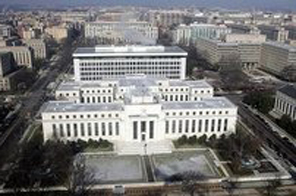As indicators point up, Obama sees end of slump
WASHINGTON: President Barack Obama said Wednesday he sees "the beginning of the end of the recession," as economic indicators and comments from the Federal Reserve suggested stabilization after a brutal slump.
"We have stopped the freefall. The market is up and the financial system is no longer on the verge of collapse," Obama said during a visit to North Carolina
"So there is no doubt that things have gotten better. We may be seeing the beginning of the end of the recession."
The Federal Reserve's Beige Book report on economic conditions also offered some signs of hope after more than a year and a half of recession.
The report, to be used by policymakers at next month's Federal Open Market Committee, said the decline is moderating, although many indicators remain weak and prospects for job creation remained grim.
The survey found data suggesting "that economic activity continued to be weak going into the summer," but that most districts "indicated that the pace of decline has moderated since the last report or that activity has begun to stabilize, albeit at a low level."
Some Fed districts used the words "slow," "subdued," or "weak" to describe activity levels, while others indicated the pace of decline appeared to be moderating. Others pointed to "signs of stabilization."
Obama said the economy is now losing jobs "at nearly half" the rate of when he took office in January, he added in mounting a defense of his plans to stimulate the economy.
He acknowledged that unemployment remains high and cautioned that the lower job losses is "little comfort if you're one of the folks who lost their job and haven't found another."
But Obama also pointed to data showing home prices rising for the first time in three years, a hopeful sign for the sector at the epicenter of the crisis.
The US president defended his actions to rescue two of the Big Three automakers and major banks, saying these were part of actions to avert the possibility of a new Great Depression.
"If we had been in ordinary times, not teetering on the brink of depression, we might have exercised other options," he said.
Obama said the 787-billion-dollar stimulus plan is working, helping stimulate activity through tax reductions as well as public works.
"This money is not being wasted," he said. "We're seeing the results of these investments here in Raleigh and across North Carolina."
"I know that there are some critics in Washington, maybe out there, they say, well, you've been too slow getting these projects started. They're saying we should have broken ground on all our highway projects on the first day. Well, that's impossible, especially because I wanted to be sure we did our homework and invested our tax dollars only in those projects that actually created jobs and jump-started our economy."
The US economy has been in recession since December 2007, according to the economic panel accepted as the arbiter of business cycles.
The economy suffered a 5.5 percent pace of decline in the first quarter, on the heels of a 6.3 percent slide in the fourth quarter of 2008. But many forecasters are expecting growth to resume in the second half of 2009.
The Fed this month raised its outlook for 2009 and 2010 economic output, projecting a rebound in the second half of 2009 that would leave the contraction for the year at between 1.0 and 1.5 percent.
For 2010, the new Fed outlook saw growth in a range of 2.1 to 3.3 percent, slightly better than its forecast from April.
The government's first estimate for gross domestic product in the second quarter to June 30 is to be released Friday. The consensus forecast by private economists is for a 1.5 percent rate of decline.
The Beige Book noted "sluggish retail activity" in most of the nation, while manufacturing showed some gains in parts of the country.
Residential real estate "stayed soft in most districts, although many noted some signs of improvement," the report added, but commercial real estate markets "weakened further in recent months" in most areas.
As to job prospects, the Fed noted that conditions remained difficult, highlighting fears that weak hiring could dampen recovery prospects.






